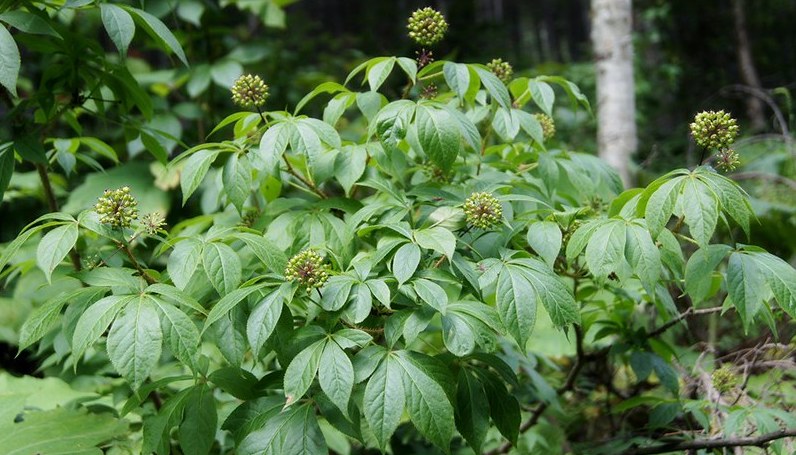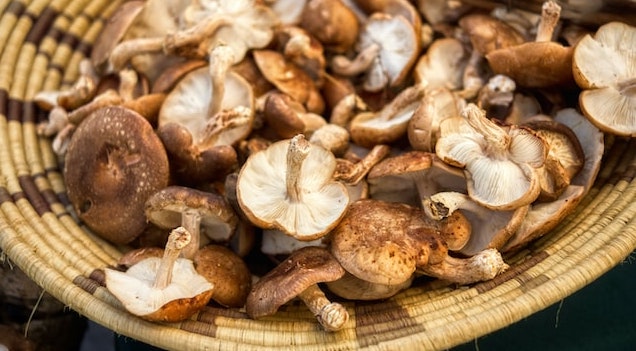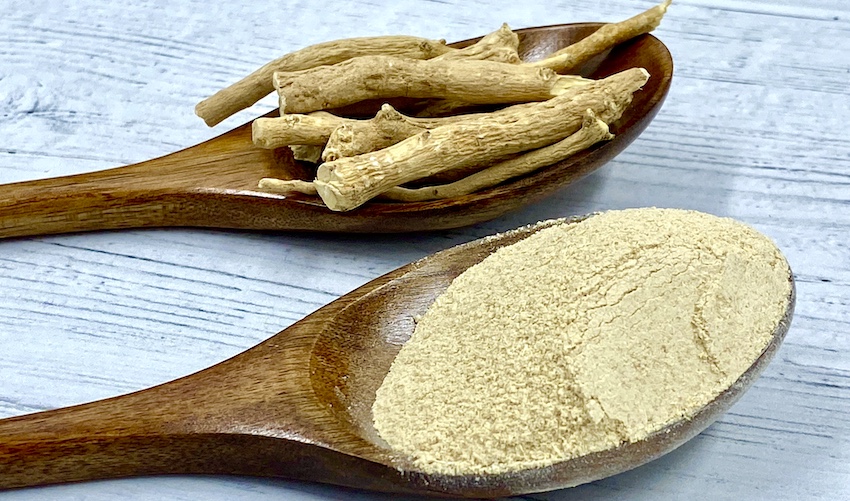One of these resources is adaptogens.
“Adapto-what?” — you might say, (perhaps while pulling a face).
Or;
“Adaptogens! Love ‘em, add them to my smoothie everyday!” — You might say instead (perhaps while jumping up and down and punching the air.)

Most likely, you’re somewhere in the middle. However, many people with an eye on the wellness world will have heard the buzzy buzzword that is adaptogens. But what actually are they? And why are they so popular?
What are Adaptogens?
Adaptogens are a class of plants and herbs that are thought to help the body resist and tolerate stressors, both emotional and physical. Basically, they help your body to adapt.
Herbs, roots and mushrooms have been used in this way for centuries in Ayurvedic and Chinese healing traditions, but the term adaptogen was first coined in 1947 by Soviet scientist Nicolai Lazerev. He was searching for ways to help Russian soldiers cope with the stressors on their bodies in natural ways, to achieve “heightened resistance.” His protégé Dr I.I. Brehkman further specified 3 points to verify what fell under the adaptogen umbrella;
1. An adaptogen is protective. It should raise an individual’s resistance to physical, chemical, or biological stresses.
2. An adaptogen boosts recovery:. It has the power to normalize the physiological functioning of organisms suffering from various physical problems.
3. Although powerful, an adaptogen must be harmless (non-toxic) to the individual ingesting it, disturbing natural bodily functions as little as possible.
The Adaptogen Renaissance
The first ‘named’ adaptogen was Eleutherococcus senticosus, or ‘Siberian ginseng’, which Brehkman catapulted from folk-healing tool, to Olympic pick-me-up. However, much of this research was kept quietly behind the Iron Curtain, and then put on the back-burner when performance enhancing drugs made their arrival.

However, today, adaptogens are having a renaissance. Each kind claims to do something a little different. But some of the most popular of the adaptogen brigade are of the fungi variety.
Yep, adaptogenic mushrooms are a key player in this trend. And though they are currently trending, they’re not a ‘fad’. Like other adaptogens these mushrooms have been used for centuries in traditional medicines, particularly in Asia. It’s worth noting that ‘adaptogenic’ mushrooms are not the same as medicinal mushrooms, though some do have the prestige of being both. Many mushrooms do have medicinal qualities which can range from immune stimulation to anti-inflammatory effects. However, adaptogenic mushrooms are those that specifically influence the body’s response to stress.
The Top Adaptogenic Mushrooms
Cordyceps
Cordyceps refers to a genus of fungi that includes around 600 species, however the most common one used in healing is Cordyceps militaris. Used in traditional Chinese medicine for millennia they were known to boost sex drive and reduce fatigue. Today studies have shown that cordyceps increase the production of adenosine triphosphate (ATP) which helps to boost oxygen absorption in cells. This makes it perfect for stamina and recovery during exercise.
Shiitake
Shiitake have the honor of being most likely the only adaptogenic mushrooms you’ll find on the shelves of your local grocery store. And, of course, they’re delicious to boot. Studies have shown that they can also boost the immune system and promote cardiovascular health, all the while being chock full of Vitamin D, essential B vitamins, and Zinc.

Lion’s Mane
This shaggy white mushroom is revered for the positive effects it may have on cognitive health. It contains many adaptogenic elements including antioxidants, polysaccharides, amino acids, vitamins, and minerals. As well as an adaptogen, it is also popular as a natural ‘nootropic’, which means it could enhance focus and mental clarity while reducing brain fog.
Reishi
Reishi, or the “herb of spiritual potency” is a jewel in the crown of Ancient Chinese medicine. Recent studies have found that reishi supports adrenal gland functioning. Adrenal glands secrete cortisol which helps the body respond to stress. Researchers suppose that reishi’s ability to shield against several stressors, including cold exposure and low oxygen levels, may be key to helping people survive in high altitude environments.
Are Magic Mushrooms Adaptogens too?
You might be wondering — are psilocybin mushrooms adaptogens? Surprisingly, despite their manifold benefits the answer is no. Adaptogens are defined by the fact they promote balance and ‘normalize’ the body. As psilocybin can cause profound (though temporary) psychological and perspective changes it is not part of the adaptogen gang. If it was, we wouldn’t get that life changing spiritual experience!

However, there are many incidents of people using psilocybin mushrooms alongside adaptogenic mushrooms, such as in the ‘Stamets Stack’, a microdosing protocol.
Non-Mushroom Adaptogens
There are also many amazing non-fungi adaptogens. In case you want to add them to your adaptogenic mushroom plan, here are some of the most popular;
Rhodiola:
Rhodiola is a herb that grows in chilly mountainous regions of Europe and Asia. It is supposed to have stress relieving and focus promoting powers. Studies have found that regularly taking it helps fight mental fatigue.
Ashwagandha:
This herb is a stalwart of Ayurveda, and has both anti-inflammatory and immune boosting properties. A literature review published in 2014 found that regularly taking ashwagandha could help with the management of anxiety.

Eleutherococcus:
Eleutherococcus (aka the aforementioned Siberian ginseng) supports adrenal function by potentially breaking down the stress hormones pinging around your body. It reduces stress and fatigue, also making it a boon for training athletes. It has even been shown to have radiation reducing powers.
Natural Healing Heroes
So, that’s adaptogens in a nutshell — a burgeoning field of natural healing heroes. It’s a fascinating area of research, and there is undoubtably more to come in the future.

In the meantime, if you are considering adding adaptogens, fungi or otherwise, to your wellness regime, be sure to consult with your doctor first.





